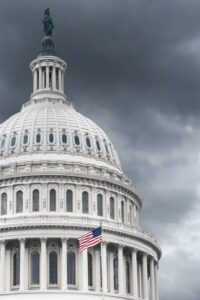Pre-Presidency Lawsuits (Business and Personal)
- Trump University Lawsuits (2013–2016):
- Nature: Trump faced several civil fraud lawsuits related to Trump University, where plaintiffs claimed they were misled into paying for real estate seminars that did not deliver on promised content.
- Outcome: Trump settled the lawsuits in 2016 for $25 million, without admitting any wrongdoing(
- Housing Discrimination Lawsuit (1973):
- Nature: The U.S. Department of Justice sued Trump Management Corporation, alleging racial discrimination against Black renters.
- Outcome: Trump agreed to a settlement in 1975, which required his company to comply with anti-discrimination policies but did not include an admission of guilt(
- New York Attorney General Civil Lawsuit (1983):
- Nature: The New York attorney general sued Trump for violating real estate broker regulations during a property sale.
- Outcome: Trump settled the case out of court by paying $250,000(
- Casino Violations (1991, 2000):
- Nature: Trump’s casinos faced fines for violating anti-money laundering rules and other gaming regulations.
- Outcome: In 2015, Trump’s casinos paid a $10 million fine for failing to report suspicious activity adequately(
- Defamation Lawsuits by Women (2017–2023):
- Nature: Several women, including journalist E. Jean Carroll, sued Trump for defamation after he denied sexual misconduct allegations.
- Outcome: Trump was found liable for defamation and battery in the E. Jean Carroll case in 2023, and he was ordered to pay $5 million in damages. Other lawsuits are either ongoing or were dismissed(
Presidency-Related Lawsuits
- Emoluments Clause Lawsuits (2017):
- Nature: These lawsuits claimed Trump violated the U.S. Constitution’s Emoluments Clauses by profiting from foreign and state governments while serving as president.
- Outcome: Several of the lawsuits were dismissed, and the U.S. Supreme Court threw out remaining cases after Trump left office in 2021(
- Trump Foundation Lawsuit (2018):
- Nature: The New York attorney general sued Trump and his children, alleging misuse of the Trump Foundation for personal and political purposes.
- Outcome: Trump agreed to shut down the foundation and pay $2 million to charity as part of a settlement(
- Michael Cohen Hush Money Case (2019):
- Nature: Investigations involved Trump’s direction and reimbursement of hush money payments made to adult film actress Stormy Daniels during the 2016 campaign.
- Outcome: Trump was not personally charged, but his former lawyer Michael Cohen was sentenced to prison(
- Capitol Riot Lawsuits (2021):
- Nature: Trump was sued by members of Congress and Capitol police officers for allegedly inciting the January 6 Capitol riot.
- Outcome: These lawsuits are still pending in the courts(
Post-Presidency Lawsuits
- New York Civil Fraud Lawsuit (2022):
- Nature: The New York attorney general filed a lawsuit accusing Trump and the Trump Organization of inflating the value of assets to obtain loans and insurance benefits.
- Outcome: As of 2023, the lawsuit is still ongoing, with the potential for significant fines and penalties(
- Classified Documents Case (2023):
- Nature: Trump is facing federal charges for mishandling classified documents after leaving office and obstructing efforts to retrieve them.
- Outcome: Trump has been indicted, and the case is ongoing(
Summary of Outcomes:
- Settlements: Trump has settled many civil cases, including high-profile lawsuits like Trump University and the Trump Foundation, without admitting wrongdoing.
- Dismissals: Several lawsuits, particularly those related to the Emoluments Clause, were dismissed following the end of his presidency.
- Ongoing Cases: There are several pending lawsuits, including civil fraud cases in New York and lawsuits stemming from the January 6 Capitol riot.
- Criminal Charges: Trump faces criminal charges related to the classified documents case and investigations into his post-election activities.
By examining Trump’s long legal history, it’s clear that his involvement in lawsuits has spanned decades and encompasses both personal business matters and political controversies.
__________________________________________________________________________
Several of Donald Trump’s advisors and staff members were charged with crimes before, during, and after his presidency.
Is the character of the people you choose as friends, associates, advisors, and partners an indicator of your core character traits? Some of the people Trump chose to be is advisors and associates were busted for violating campaign finance laws, lying to the FBI, and witness tampering.
As of now, there have been no major reports of Kamala Harris’ advisors or staff members being charged with crimes throughout her political career, which has spanned roles as District Attorney of San Francisco, Attorney General of California, U.S. Senator, and now Vice President of the United States.
Kamala Harris has generally maintained a team without significant legal controversies. However, like any political figure, her staff has faced scrutiny on certain policy decisions or management practices, but none of this has resulted in criminal charges.
Trumps Associates Who Needed His Presidential Pardon.
- Michael Flynn (National Security Advisor):
- Charged with lying to the FBI about his communications with Russia before Trump took office.
- Outcome: Pleaded guilty in 2017 but was later pardoned by Trump in 2020.
- Paul Manafort (Campaign Chairman):
- Charged with a range of offenses, including tax fraud, bank fraud, and failure to register as a foreign agent. His charges were largely related to his consulting work for pro-Russian Ukrainian politicians before his time on Trump’s campaign.
- Outcome: Convicted in 2018 and sentenced to prison. Trump later commuted his sentence in 2020.
- Rick Gates (Deputy Campaign Chairman):
- Charged with conspiracy against the U.S. and lying to the FBI. His charges were tied to his work with Manafort in Ukraine.
- Outcome: Pleaded guilty in 2018 and cooperated with investigators. He was sentenced to probation.
- George Papadopoulos (Campaign Foreign Policy Advisor):
- Charged with lying to the FBI about contacts with individuals linked to Russia during the campaign.
- Outcome: Pleaded guilty in 2017 and served 12 days in prison.
- Michael Cohen (Personal Attorney):
- Charged with tax evasion, bank fraud, and campaign finance violations related to hush-money payments made to women alleging affairs with Trump.
- Outcome: Pleaded guilty in 2018 and was sentenced to 3 years in prison.
- Roger Stone (Political Advisor):
- Charged with witness tampering, obstruction of justice, and making false statements during investigations into Russian interference in the 2016 election.
- Outcome: Convicted in 2019, but Trump commuted his sentence in 2020.
- Steve Bannon (Chief Strategist):
- Charged with fraud in 2020 for his role in the “We Build the Wall” fundraising campaign, accused of siphoning off donations.
- Outcome: Trump pardoned him in 2021 before the case went to trial.
Post-Presidency:
- Allen Weisselberg (Trump Organization CFO):
- Charged in 2021 with tax fraud and other financial crimes in connection with benefits he received while working at the Trump Organization.
- Outcome: He pleaded guilty in 2022 and agreed to testify against the Trump Organization.
Summary:
Several of Trump’s advisors and associates were charged with various crimes, some of which were unrelated to their time working for Trump but emerged during investigations tied to his campaign or presidency. These charges often stemmed from financial crimes, lying to federal investigators, or issues connected to foreign relations, and many resulted in convictions or guilty pleas. Some of those individuals received pardons or commutations from Trump during or after his presidency.
Sources:
As of now, Kamala Harris has not been the subject of any criminal charges or significant civil lawsuits during her political career. Harris has held various positions, including District Attorney of San Francisco, Attorney General of California, U.S. Senator, and Vice President of the United States, and while she has been involved in controversial decisions or policies, there have been no personal legal actions taken against her in the form of criminal charges or civil lawsuits.
However, her actions as Attorney General of California have occasionally drawn criticism, particularly on issues such as:
- Criminal justice reform: Some criticized Harris for defending controversial policies related to prison labor, her handling of police misconduct cases, and opposing early release programs for inmates. These criticisms, however, did not result in legal action against her(
Settlements with corporations: As Attorney General, Harris reached several significant settlements, such as the $1.1 billion mortgage settlement with banks over the foreclosure crisis(), but these were part of her official duties and not personal lawsuits.
In summary, while Kamala Harris has faced political and public scrutiny for her policy positions, there have been no civil lawsuits or criminal charges levied against her personally throughout her career.



 “A pioneer of Massive Open Online Courses (MOOCs), George Siemens of Athabasca University, Canada, is one of the impressive list of keynote speakers confirmed for ICDE’s World Conference to be hosted by Tianjin Open University, China, 16-18 October 2013. Siemens contends that the most prominent MOOCs are failing the ideals of the Open Education movement.”
“A pioneer of Massive Open Online Courses (MOOCs), George Siemens of Athabasca University, Canada, is one of the impressive list of keynote speakers confirmed for ICDE’s World Conference to be hosted by Tianjin Open University, China, 16-18 October 2013. Siemens contends that the most prominent MOOCs are failing the ideals of the Open Education movement.”